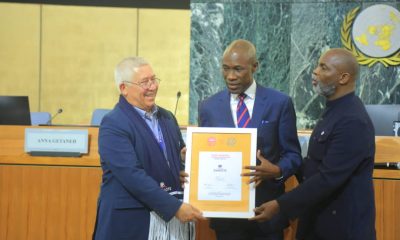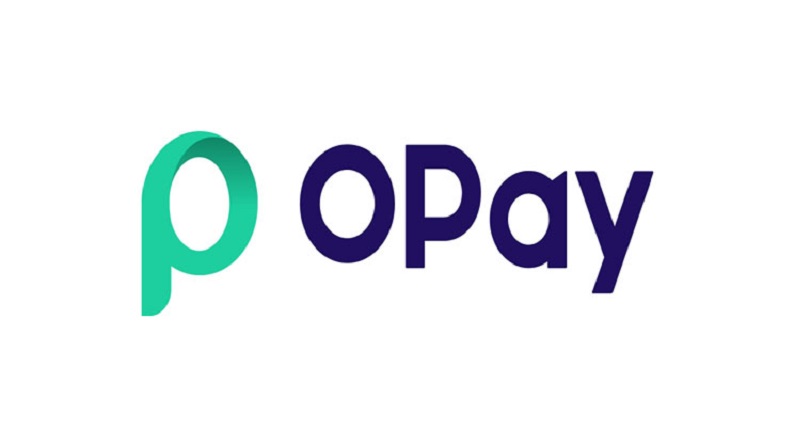Technology
Charting the Course of AI in Nigeria’s Business Terrain

By Olumide Balogun
In the bustling markets of Lagos, a remarkable transformation is underway. A local logistics company, once struggling with efficiency, has now streamlined its entire operation using AI-driven solutions. This is a glimpse into the broader canvas of Africa where Artificial Intelligence (AI) is rapidly becoming a cornerstone for business innovation.
Across the continent, from the tech hubs of Nairobi to the vibrant streets of Accra, AI is no longer a distant concept but a present-day tool reshaping the way businesses operate and grow. Enterprises of all sizes are tapping into AI to enhance their processes, improve customer experiences, and unlock new growth potential.
Recently, Google brought together industry leaders from leading organisations such as MTN, FirstBank, and Kuda to explore the integration and impact of AI in African businesses. The discussions brought into focus the immediate relevance of AI, emphasising that its value lies not just in preparing for future challenges but in providing practical solutions for the pressing needs of today’s market.
Fola Olatunji-David, representing the Nigerian Minister of Communication, Innovation & Digital Economy, Dr Bosun Tijan noted that “AI is not just a technological leap forward, but a catalyst for redefining how we approach business challenges and opportunities in Africa.”
As AI becomes more prevalent across Africa, it’s crucial to recognize that its adoption is more than just a technological upgrade. It’s about rethinking how businesses operate, engage with customers, and improve their processes. Key factors like managing costs, acquiring the right talent, and implementing effective strategies are central to this transition. Successfully navigating these aspects of AI integration hinges on practical solutions and a collective commitment to embracing and adapting to this technological evolution.
In this transformative landscape, it’s the businesses that are at the forefront, with the support of collaborative partners. Our initiatives, like the Google for Startups Accelerator AI First program, aim to empower businesses to effectively leverage AI technologies. By working together, we can ensure that the adoption of AI across Africa’s business sector is impactful and responsible, driving progress and prosperity across the continent.
The transformative potential of AI in Africa is immense. It offers a pathway for businesses to enhance operational efficiency, drive innovation, and remain competitive in a rapidly evolving global market. The journey of integrating AI into African businesses is a testament to the region’s resilience, adaptability, and commitment to embracing new technologies for sustainable growth and development.
The narrative of AI in Africa is evolving, marked by instances of innovation and collaborative efforts. While there are diverse experiences across the continent, many businesses are finding ways to harness technology for their growth and success. This journey with AI is contributing to various aspects of economic development, illustrating the potential and diverse applications of technology in different African contexts.
In the vibrant city of Lagos, a small yet ambitious logistics company is redefining its business landscape. By integrating Artificial Intelligence (AI) into their operations, they have not only improved efficiency but have also carved a new path for growth and innovation. This is not just an isolated success story; it mirrors a larger narrative unfolding across Africa where AI is becoming a fundamental tool for business transformation.
Across the continent, in bustling marketplaces and corporate boardrooms, AI is no longer perceived as a futuristic notion but as a present-day catalyst for change. Businesses, both large and small, are increasingly embracing AI to enhance processes, customer experiences, and scalability. This adoption signifies a significant shift in how African businesses approach innovation and competitiveness in the global market.
A recent roundtable convened by Google brought together leaders from top organisations like MTN, FirstBank, and Kuda in Nigeria. This gathering was more than just a meeting of minds; it was a testament to the growing recognition of AI’s role in reshaping African businesses. One of the most poignant insights, shared by Fola Olatunji-David, representing the Nigerian Minister of Communication, Innovation & Digital Economy, encapsulates this sentiment perfectly: “AI is not just a technological leap forward but a catalyst for redefining how we approach business challenges and opportunities in Africa.”
However, the integration of AI into the African business sector is not without its challenges. It requires a reimagining of business models, customer engagement strategies, and operational efficiencies. Key hurdles such as cost, talent acquisition, and strategic implementation need to be addressed. This journey towards AI integration calls for not just innovative solutions but also a unified vision and a steadfast commitment to driving technological change.
It is essential to acknowledge that businesses are at the forefront of this transformation. They are the primary drivers of innovation, with collaborative partners playing a supportive role in this journey. Initiatives like Google’s Accelerator AI First program are designed to empower businesses to effectively leverage AI for sustainable growth and innovation. This collaborative approach ensures that AI adoption across Africa’s business sector is both impactful and responsible, contributing to progress and prosperity.
The potential of AI to transform Africa’s business landscape is immense. It provides a pathway for businesses to enhance operational efficiency, drive innovation, and remain competitive in a rapidly evolving global market. This transformative journey is a testament to the resilience, adaptability, and commitment of African businesses to embrace new technologies for sustainable growth and development.
As we look to the future, the focus is clear. AI’s role in Africa is not just about technological advancement; it’s about shaping a new economic narrative for the continent. A narrative where technology acts as a catalyst for sustainable growth, innovation, and a brighter, more prosperous future for Africa.
The story of AI in Africa is one of collaborative innovation, transformation, and the promise of a technologically empowered continent. It’s a narrative that showcases how technology can be harnessed not only to drive business success but also to contribute significantly to the economic prosperity of the continent.
Olumide Balogun is the West Africa Director for Google
Technology
Telecom Operators to Issue 14-Day Notice Before SIM Disconnection

By Adedapo Adesanya
Telecommunications operators in Nigeria will now be required to give subscribers a minimum of 14 days’ notice before deactivating their SIM cards over inactivity or post-paid churn, following a fresh proposal by the Nigerian Communications Commission (NCC).
The proposal is contained in a consultation paper, signed by the Executive Vice Chairman and Chief Executive Officer of the NCC, Mr Aminu Maida, and titled Stakeholders Consultation Process for the Telecoms Identity Risks Management Platform, dated February 26, 2026, and published on the Commission’s website.
Under the proposed amendments to the Quality-of-Service (QoS) Business Rules, the Commission said operators must notify affected subscribers ahead of any planned churn.
“Prior to churning of a post-paid line, the Operator shall send a notification to the affected subscriber through an alternative line or an email on the pending churning of his line,” the document stated.
It added that “this notification shall be sent at least 14 days before the final date for the churn of the number.”
A similar provision was proposed for prepaid subscribers. According to the Commission, operators must equally notify prepaid customers via an alternative line or email at least 14 days before the final churn date.
Currently, under Section 2.3.1 of the QoS Business Rules, a subscriber’s line may be deactivated if it has not been used for six months for a revenue-generating event. If the inactivity persists for another six months, the subscriber risks losing the number entirely, except in cases of proven network-related faults.
The new proposal is part of a broader regulatory review tied to the rollout of the Telecoms Identity Risk Management System (TIRMS), a cross-sector platform designed to curb fraud linked to recycled, swapped and barred mobile numbers.
The NCC explained in the background section of the paper that TIRMS is a secure, regulatory-backed platform that helps prevent fraud stemming from churned, swapped, barred Mobile Station International Subscriber Directory Numbers in Nigeria.
It said this platform will provide a uniform approach for all sectors in relation to the integrity and utilisation of registered MSISDNs on the Nigerian Communications network.
In addition to the 14-day notice requirement, the Commission also proposed that operators must submit details of all churned numbers to TIRMS within seven days of completing the churn process, strengthening oversight and accountability in the system.
The consultation process, which the Commission said is in line with Section 58 of the Nigerian Communications Act 2003, will remain open for 21 days from the date of publication. Stakeholders are expected to submit their comments on or before March 20, 2026.
Technology
Silverbird Honours Interswitch’s Elegbe for Nigeria’s Digital Payments Revolution

By Modupe Gbadeyanka
The founder of Interswitch, Mr Mitchell Elegbe, has been honoured for pioneering Nigeria’s digital payments revolution.
At a ceremony in Lagos on Sunday, March 1, 2026, he was bestowed with the 2025 Silverbird Special Achievement Award for shaping Africa’s financial ecosystem.
The Silverbird Special Achievement Award recognises individuals whose innovation, vision, and sustained impact have left an indelible mark on society.
Mr Elegbe described the award as both humbling and symbolic of a broader journey, saying, “This honour represents far more than a personal milestone. It reflects the courage of a team that believed, long before it was fashionable, that Nigeria and Africa could build world-class financial infrastructure.”
“When we started Interswitch, we were driven by a simple but powerful idea that technology could democratise access, unlock opportunity, and enable commerce at scale.
“This recognition by Silverbird strengthens our resolve to continue building systems that empower businesses, support governments, and expand inclusion across the continent,” he said when he received the accolade at the Silverbird Man of the Year Awards ceremony attended by several other dignitaries, whose leadership and contributions continue to shape national development and industry transformation.
In 2002, Mr Elegbe established Interswitch after he was inspired by a bold conviction that technology could fundamentally redefine how value moves within and across economies.
Under his leadership, the company has evolved into one of Africa’s foremost integrated payments and digital commerce companies, powering financial transactions for governments, banks, businesses, and millions of consumers.
Today, much of Nigeria’s electronic payments ecosystem traces its foundational architecture to the systems and rails established under his leadership.
“Mitchell’s journey is inseparable from Nigeria’s digital payments evolution. His foresight and resilience helped establish foundational infrastructure at a time when the ecosystem was still nascent.
“This recognition affirms not only his personal legacy, but the broader impact of Interswitch in enabling commerce and strengthening financial systems across Africa,” the Executive Vice President and Group Marketing and Communications for Interswitch, Ms Cherry Eromosele, commented.
Technology
SERAP Seeks FCCPC Probe into Big Tech’s Impact on Nigeria’s Digital Economy

By Adedapo Adesanya
The Socio-Economic Rights and Accountability Project (SERAP) has called on the Federal Competition and Consumer Protection Commission (FCCPC) to urgently investigate major global technology companies over alleged abuses affecting Nigeria’s digital economy, media freedom, privacy rights and democratic integrity.
In a complaint addressed to the chief executive of FCCPC, Mr Tunji Bello, the group accused Google, Meta (Facebook), Apple, Microsoft (Bing), X, TikTok, Amazon and YouTube of deploying opaque algorithms and leveraging market dominance in ways that allegedly undermine Nigerian media organisations, businesses, and citizens’ rights.
The complaint, signed by SERAP Deputy Director, Mr Kolawole Oluwadare, urged the commission to take measures necessary to urgently prevent further unfair market practices, algorithmic influence, consumer harm and abuses of media freedom, freedom of expression, privacy, and access to information.”
SERAP also asked the FCCPC to convene a public hearing to investigate allegations of algorithmic discrimination, data exploitation, revenue diversion, and anti-competitive conduct involving the tech giants.
According to the organisation, dominant digital platforms now act as private gatekeepers of Nigeria’s information and business ecosystem, wielding enormous influence over public discourse and market competition without sufficient transparency or regulatory oversight.
“Millions of Nigerians rely on these platforms for news, information and business opportunities,” SERAP stated, warning that opaque algorithms and offshore revenue extraction models pose both economic and human rights concerns.
The group argued that the alleged practices threaten media plurality, consumer protection, privacy rights, and the integrity of Nigeria’s forthcoming elections.
SERAP pointed to actions taken by the South African Competition Commission, which investigated Google over alleged bias against local media content, adding that the South African probe reportedly resulted in measures including algorithmic transparency requirements, compliance monitoring and financial remedies.
SERAP urged the FCCPC to take similar steps to safeguard Nigerian media and businesses.
The organisation maintained that if established, the allegations could amount to violations of Sections 17 and 18 of the Federal Competition and Consumer Protection Act (FCCPA), which prohibit abuse of market dominance and anti-competitive conduct.
SERAP stressed that the FCCPC has statutory authority to investigate and sanction conduct that substantially prevents, restricts or distorts competition in Nigeria.
It also warned that failure by the Commission to act promptly could prompt the organisation to pursue legal action to compel regulatory intervention.
Citing concerns reportedly raised by the Nigerian Press Organisation (NPO), SERAP said big tech companies have fundamentally altered Nigeria’s information environment, creating what it described as a structural imbalance of power that threatens the sustainability of professional journalism.
Among the allegations listed are: Algorithms controlled outside Nigeria determining content visibility, monetisation of Nigerian news content without proportionate reinvestment, offshore extraction of advertising revenues, limited discoverability of Nigerian websites and platforms, and lack of transparency in ranking and recommendation systems.
SERAP argued that declining revenues in the Nigerian media industry have led to shrinking newsrooms, closure of bureaus, and the emergence of news deserts, weakening journalism’s constitutional role in democratic accountability.
The organisation further warned that algorithmic opacity and data-driven micro-targeting could influence voter exposure to information ahead of Nigeria’s forthcoming elections, raising concerns about electoral fairness and transparency.
-

 Feature/OPED6 years ago
Feature/OPED6 years agoDavos was Different this year
-
Travel/Tourism10 years ago
Lagos Seals Western Lodge Hotel In Ikorodu
-

 Showbiz3 years ago
Showbiz3 years agoEstranged Lover Releases Videos of Empress Njamah Bathing
-

 Banking8 years ago
Banking8 years agoSort Codes of GTBank Branches in Nigeria
-

 Economy3 years ago
Economy3 years agoSubsidy Removal: CNG at N130 Per Litre Cheaper Than Petrol—IPMAN
-

 Banking3 years ago
Banking3 years agoSort Codes of UBA Branches in Nigeria
-

 Banking3 years ago
Banking3 years agoFirst Bank Announces Planned Downtime
-

 Sports3 years ago
Sports3 years agoHighest Paid Nigerian Footballer – How Much Do Nigerian Footballers Earn


















